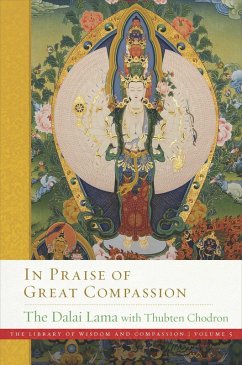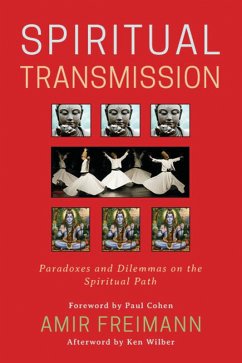
Compassion and Meditation (eBook, ePUB)
The Spiritual Dynamic between Buddhism and Christianity

PAYBACK Punkte
0 °P sammeln!
A profound reflection on how complementary themes in Buddhism and Christianity could serve as the basis for a truly ecumenical faith • Compares Zen meditation with the Greek Orthodox practice of Hesychasm (prayer of the heart) • Shows how Buddha and Jesus represent the distinct yet complementary values of meditation and compassion In Asian spiritual traditions the mountain traditionally symbolizes meditation while the ocean signifies compassion. Jean-Yves Leloup uses this metaphor to compare Buddhist and Christian approaches to meditation and compassion to reveal the similarities and...
A profound reflection on how complementary themes in Buddhism and Christianity could serve as the basis for a truly ecumenical faith • Compares Zen meditation with the Greek Orthodox practice of Hesychasm (prayer of the heart) • Shows how Buddha and Jesus represent the distinct yet complementary values of meditation and compassion In Asian spiritual traditions the mountain traditionally symbolizes meditation while the ocean signifies compassion. Jean-Yves Leloup uses this metaphor to compare Buddhist and Christian approaches to meditation and compassion to reveal the similarities and divergences of these profound practices. Emphasizing their complementary nature, Leloup describes how Jesus and Buddha are necessary to one another and how together they form a complete system: Jesus as awakening through love, and Buddha as awakening through meditation. Where Buddha represents the forests, Jesus represents the trees. Buddha is brother to the universe, whereas Jesus is brother to humanity. Nevertheless, these two religious traditions have a profound common ground. Compassion is central to Buddhism, and meditation practices have been central to many Christian traditions. Both view murder, theft, and the destructive use of sexuality as great barriers to realizing our essential being, and both agree on the need to rise above them. Here, however, Leloup suggests that both faiths could benefit from the precepts of the other. The complementary aspects of Christianity and Buddhism offer the possibility for a truly profound ecumenical religion whose interfaith relations are based on deep understanding of the true meaning and practice of meditation and compassion and not merely shared goodwill.
Dieser Download kann aus rechtlichen Gründen nur mit Rechnungsadresse in A, B, BG, CY, CZ, D, DK, EW, E, FIN, F, GR, HR, H, I, LT, L, LR, M, NL, PL, P, R, S, SLO, SK ausgeliefert werden.













